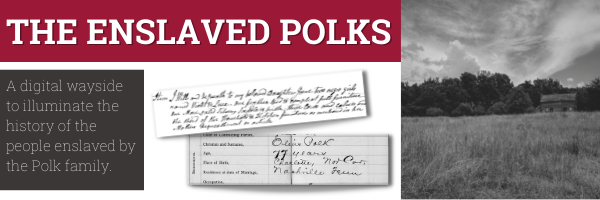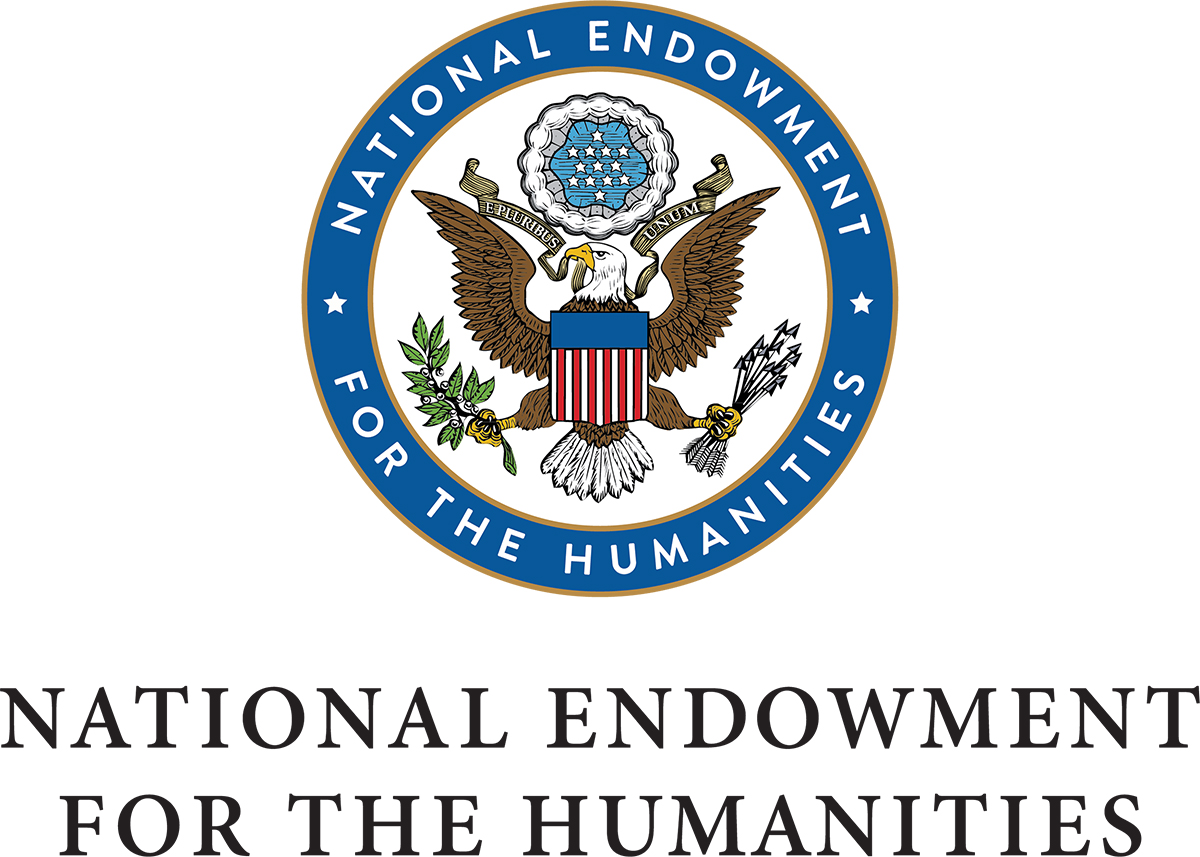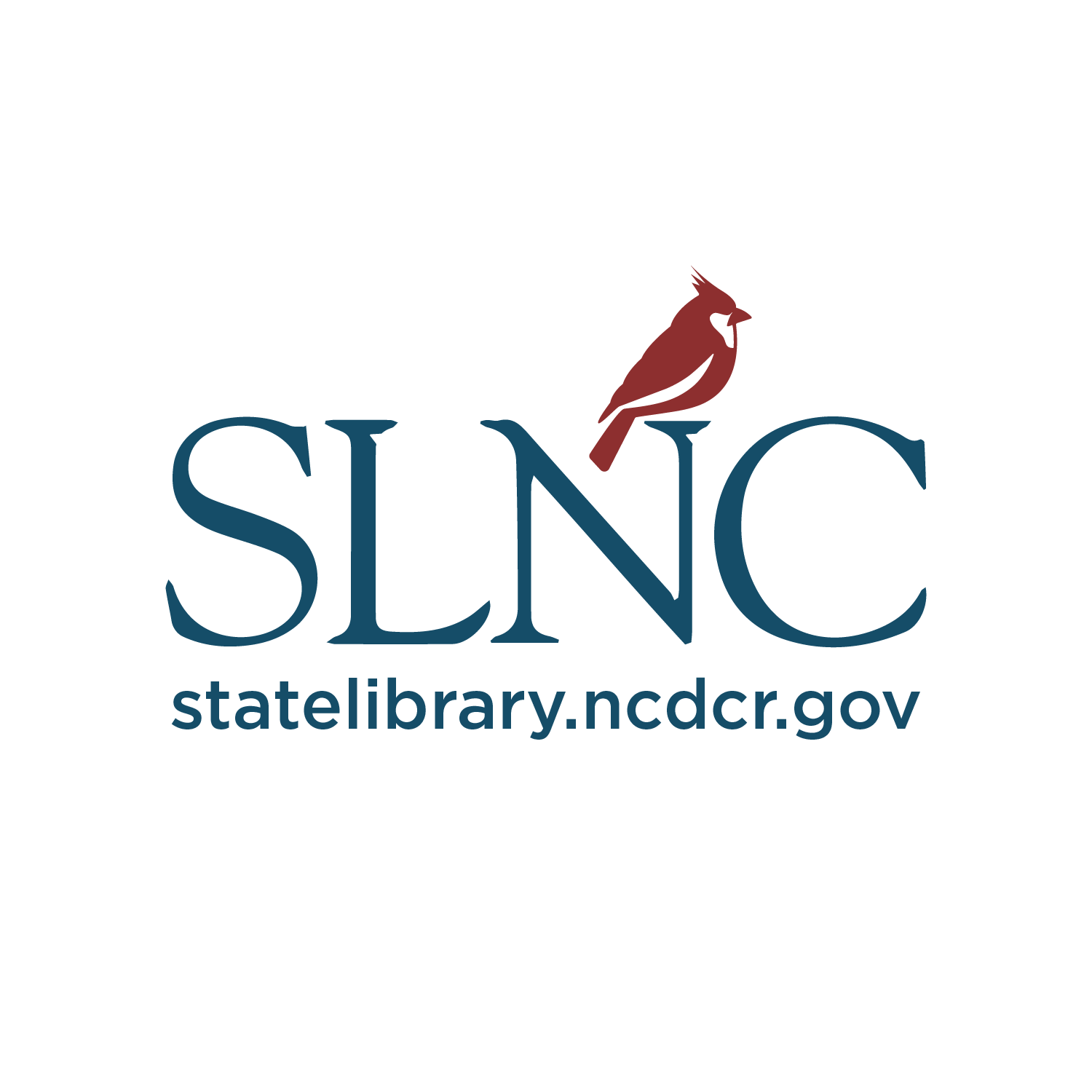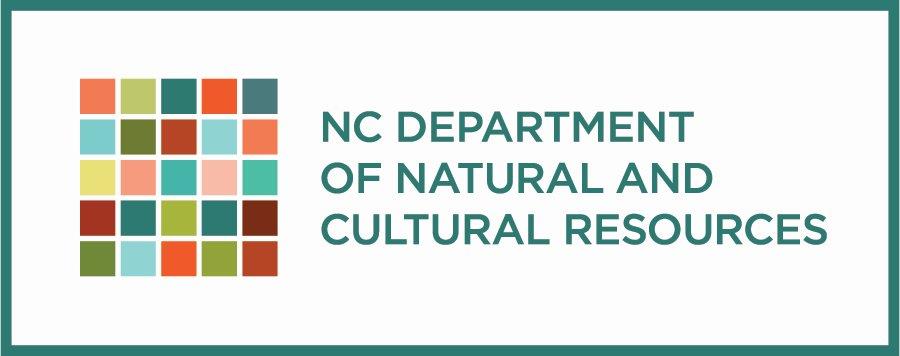Grantee Spotlight: A Q+A with President James K. Polk State Historic Site

Three presidents have been born in North Carolina: Andrew Jackson, Andrew Johnson, and James Knox Polk. Located about two miles from the South Carolina/ North Carolina state line in Pineville is President James K. Polk State Historic Site, the birthplace of the 11th president of the United States.
Sitting on 21 acres of the original 150 acres that President Polk’s father owned at the time, is a modern-day educational museum, a historic cabin house and kitchen house, and a path to the local Mecklenburg County Greenway. These historic structures and the site itself are meant to be a faithful representation of what the Polk farm could have looked like in the late 18th to early 19th centuries. One thing that hasn’t always had a prominent place at the site and sites like it however, is enslaved narratives.
In 2019 and 2022 NC Humanities awarded grant funding to Polk State Historic Site to help bring The Slave Dwelling Project, a national overnight experience, there. This weekend-long series of intimate, immersive, and engaging programs focus on the history, experiences, and heritage of enslaved persons and segregation in the U.S. and the Carolinas. The conversations, living-history events, and presentations at Polk State Historic Site were designed to educate visitors on the enslaved experience of the 19th century in the Piedmont region of North Carolina.
We connected with Scott Warren, Historic Site Manager at President James K. Polk State Historic Site, to learn more about the project and explore how the site has been incorporating more diverse narratives into its displays and program offerings.
How has Polk State Historic Site furthered their inclusive storytelling practices?
Scott: We’ve made a commitment to feature more inclusive narratives that we think deserve to be told. The pandemic really gave us an opportunity to reset the proverbial clock so to speak. After taking a critical look at our interpretation and programming, we felt like we could improve our inclusivity and tell a more complete story. Former employee and consultant Kate Moore helped us to research the lives of the five enslaved people that were here at Polk. Through consultation with her and with the assistance from our state historic sites and division historian, Dr. Sarah Leonard, we are sharing their stories. You can see our progress and learn about Violet, Lucy, and Elias Polk on our The Enslaved Polks website. When you’re at the museum in person, you can see their names and stories around the site and can also scan a QR code to read more. We’re also working to incorporate the stories and lives of the Catawba peoples. The Catawba were on this land; it is their ancestral home. We’ve been working with the Catawba Indian Nation in York County, SC to help us bring their stories out even more at Polk for our visitors.
 Can you tell us more about the Slave Dwelling Project?
Can you tell us more about the Slave Dwelling Project?
Scott: The Slave Dwelling Project was founded by Joe McGill, a historian working at Magnolia Plantation and Gardens in Charleston, SC. I first met Joe when we had the Slave Dwelling Project come to Polk in 2017. The reception was so great that we organized to have the Slave Dwelling Project come back to Polk in 2019 and 2022. Both visits were graciously funded by North Carolina Humanities. It’s been a great partnership and a really great way for our visitors to connect with hard histories. Joe and his team of storytellers and interpreters go to these slave dwelling places, engage in conversations with staff and visitors, and invite people to sleep in those places where the enslaved either ate, slept, lived, and died, or were instrumental in building the physical or cultural environment.
 What has the Slave Dwelling Project looked like at Polk?
What has the Slave Dwelling Project looked like at Polk?
Scott: Typically, we host the Slave Dwelling Project over a weekend. What we’ve done in years past with help from NC Humanities is kicked off the weekend with a Friday evening campfire where we sit around it and Joe talks about how the legacy of slavery impacts us as an American society today. He tries to unpack that and facilitate good, honest conversation. Those conversations transition us into the sleepover portion. Joe, his staff, and a number of our visitors physically sleep in the cabins here at Polk. This past year, we did not include that element due to COVID-19. In 2019 though, some people slept on the floor of what we have interpreted as our kitchen house. This activity of sleeping in these spaces is a way to connect emotionally and spiritually to the place where enslaved people lived, worked, and let’s be honest, died. Joe really feels like that’s an important component and I totally agree.
On Saturday we host the living history portion. It’s living history, but it’s also storytelling and interpretation. This year, one gentleman, Terry James, was in the kitchen house cooking and employing our visitors, another gentleman was doing blacksmithing, and Carolyn Evans portrayed Harriet Tubman. She is fantastic. I get goosebumps just talking about it. When you see her, she really brings that persona of Harriet Tubman to life. It’s very interactive and impactful.
 Why is the Slave Dwelling Project and humanities content like it important for the community?
Why is the Slave Dwelling Project and humanities content like it important for the community?
Scott: For me, personally and professionally, I think history is not easy; it’s complicated, and sometimes ugly. It’s our job as historians, museum professionals, and whatnot to tell that complete picture. For so long, I think, especially in our field, the voice of the enslaved and the voice of Native Americans has not been equitable in our storytelling. To think inconclusively and just listen is absolutely critical to what we do and the story we want to tell as a nation.
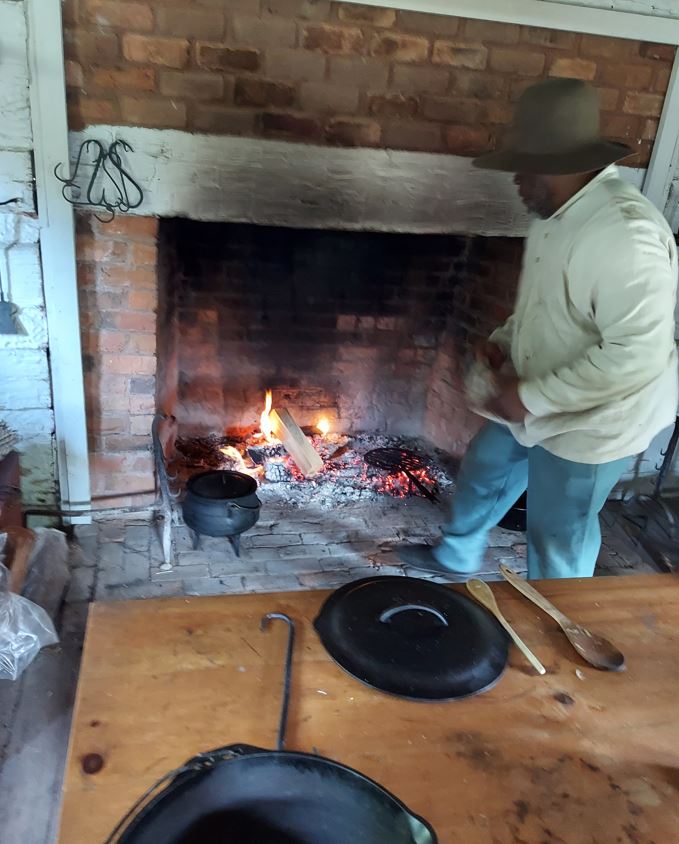 What is on the horizon at Polk?
What is on the horizon at Polk?
Scott: On October 22 a local storyteller, Dontavius Williams, will be here at Polk! Dontavius is a great storyteller, great interpreter, and really brings enslaved narratives to life. We’ve been fortunate enough to have him at Polk before doing cooking demonstrations and talking about those food ways that still influence our culinary pallets today. He’s going to be back in October doing that same workshop. We’ll have more information on our website about how folks can attend soon.
How can people support President James K. Polk State Historic Site?
People can make a donation online at https://polkmemorialsupportfundinc.wildapricot.org/Donate or make a contribution in person the next time they come visit the site.
About North Carolina Humanities’ Grantee Spotlights: In celebration of our 50th anniversary, NC Humanities Grantee Spotlights shine a light on the incredible work of our grantee partners, offering details about their funded project, and feature a Q&A with a team member associated with the organization.
Photo Credits: President James K. Polk State Historic Site



